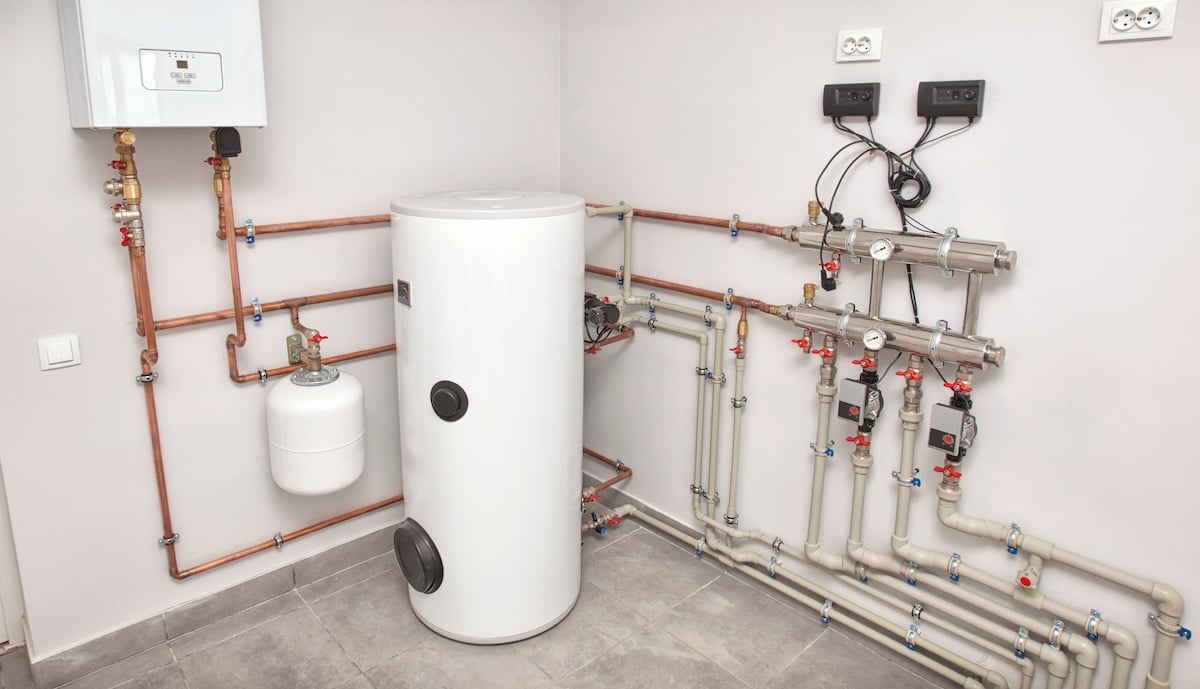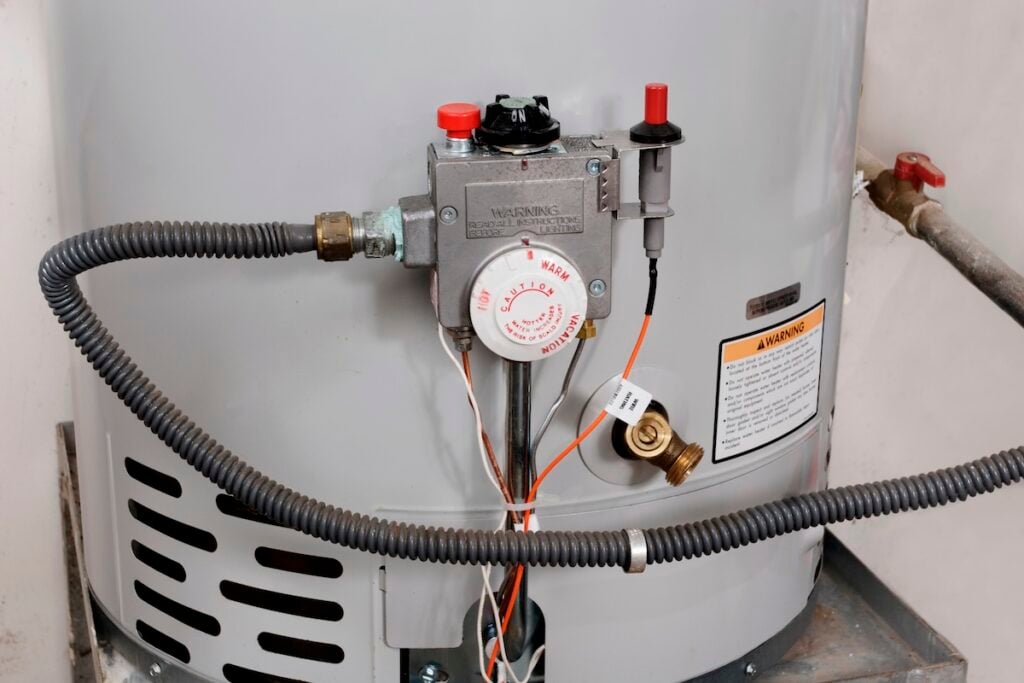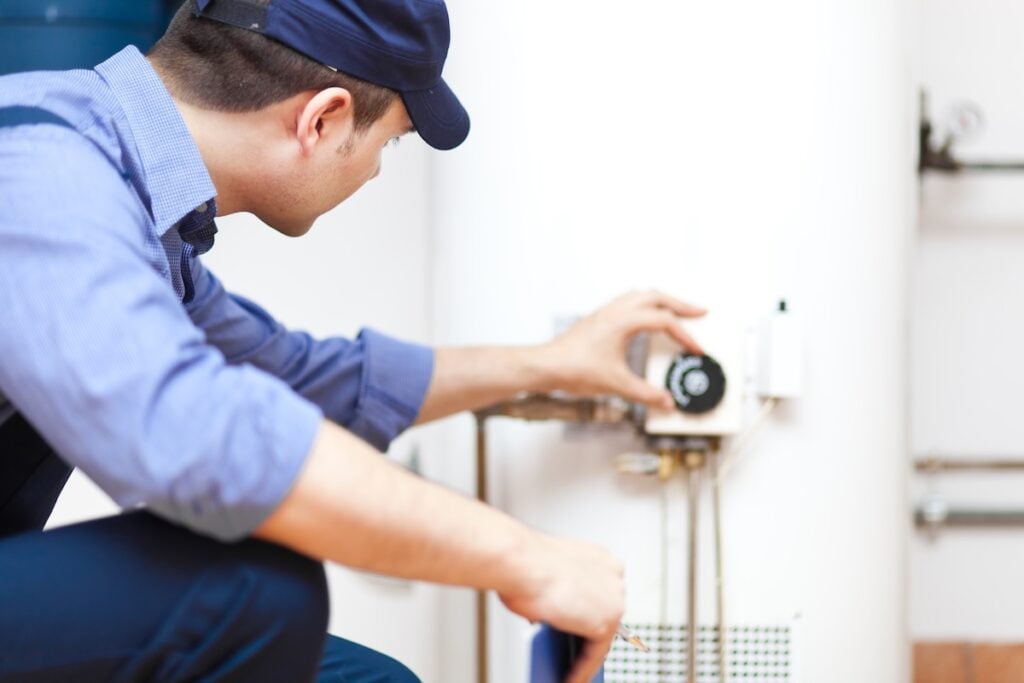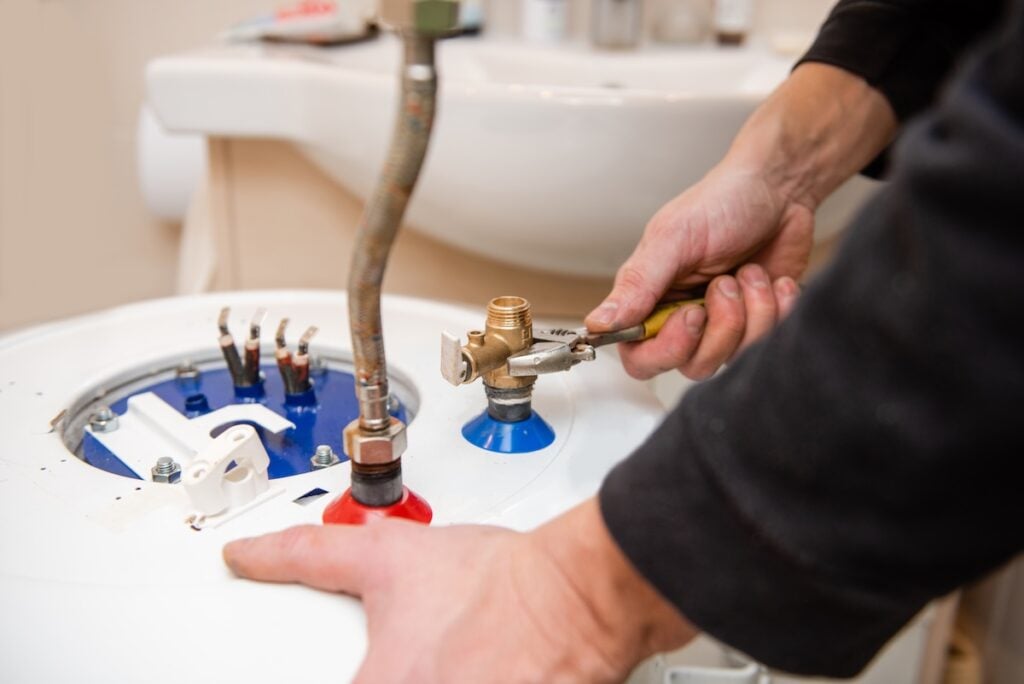


September 3, 2025
5 Types of Water Heaters to Invest In This Year (HVAC Guide)
Choosing the right water heater for your home can feel overwhelming with so many options available. Each type offers different benefits, costs, and efficiency levels that can significantly impact your monthly bills and daily comfort. This comprehensive guide will help you understand the various types of water heaters available and which one might be the best investment for your home this year.
We’ll cover the key factors to consider when selecting a water heater, explore the most popular types available, and provide insights to help you make an informed decision. Whether you’re replacing an old unit or installing your first water heater, this guide will give you the confidence to choose the right system for your needs.
- Traditional storage tank water heaters – the most common and affordable option
- Tankless water heaters – space-saving and energy-efficient solutions
- Heat pump water heaters – environmentally friendly with excellent efficiency
- Solar water heaters – harness renewable energy for hot water
- Condensing water heaters – high-efficiency units for larger homes
💧 Understanding Water Heater Basics

Before diving into specific types of water heaters, it’s important to understand how these systems work and what factors influence their performance. Water heaters are essential appliances that provide hot water for showers, washing dishes, laundry, and other daily activities.
The main components include a heating source (gas, electric, or solar), insulation to maintain water temperature, and a delivery system to distribute hot water throughout your home. The size, efficiency rating, and fuel type all play crucial roles in determining which water heater will work best for your specific situation.
Key Factors to Consider
When evaluating different types of water heaters, several factors should guide your decision:
Energy Efficiency: Look for units with high Energy Factor (EF) ratings or Uniform Energy Factor (UEF) ratings. Higher ratings mean lower operating costs and reduced environmental impact.
Household Size: The number of people in your home directly affects how much hot water you’ll need. Larger families typically require either bigger tanks or more powerful heating systems.
Available Space: Some water heaters require significant floor space, while others can be mounted on walls or installed in tight spaces.
Fuel Type: Your home’s existing infrastructure (natural gas lines, electrical capacity) may influence which type of water heater you can install.
Budget: Consider both upfront costs and long-term operating expenses when making your decision.
🏠 5 Types of Water Heaters to Consider This Year

Choosing the right water heater can save you money on energy bills and ensure you always have hot water when you need it. Understanding the different types available helps you make the best choice for your home and budget.
1. Traditional Storage Tank Water Heaters
Storage tank water heaters remain the most popular choice for American homes, and for good reason. These units store heated water in an insulated tank, keeping it ready for use whenever you turn on a faucet or appliance.
Advantages:
- Lower upfront costs compared to other options
- Simple installation process
- Reliable technology with proven track record
- Easy to repair and maintain
- Available in various sizes to meet different household needs
Disadvantages:
- Higher energy costs due to standby heat loss
- Limited hot water supply during peak usage
- Require significant floor space
- Shorter lifespan compared to some alternatives
Storage tank water heaters typically last 8-12 years and are available in sizes ranging from 20 to 100 gallons. They work well for most families and offer the benefit of storing hot water for immediate use during high-demand periods.
2. Tankless Water Heaters
Tankless water heaters, also called on-demand water heaters, heat water only when you need it. This eliminates the standby energy losses associated with storage tank units and can provide unlimited hot water supply.
Advantages:
- Significant energy savings (20-30% more efficient)
- Unlimited hot water supply
- Compact size saves valuable floor space
- Longer lifespan (typically 15-20 years)
- Lower risk of water damage from tank leaks
Disadvantages:
- Higher initial purchase and installation costs
- May require electrical or gas line upgrades
- Slower flow rates during simultaneous use
- More complex maintenance requirements
Tankless units work best for smaller households or homes with lower simultaneous hot water demand. They’re particularly valuable in areas where space is at a premium or energy costs are high.
3. Heat Pump Water Heaters
Heat pump water heaters use electricity to move heat from the surrounding air into the water, rather than generating heat directly. This technology makes them extremely energy-efficient, especially in moderate climates.
Advantages:
- Excellent energy efficiency (2-3 times more efficient than conventional electric units)
- Reduced greenhouse gas emissions
- Eligible for utility rebates and tax incentives
- Dehumidifies surrounding air as a bonus feature
Disadvantages:
- Higher upfront costs than traditional units
- Requires adequate space around the unit for air circulation
- Performance decreases in cold environments
- Longer recovery time after heavy usage
These units work best in spaces that remain between 40-90°F year-round and have at least 1,000 cubic feet of air space around them. They’re ideal for homeowners prioritizing energy efficiency and environmental responsibility.
4. Solar Water Heaters
Solar water heaters use the sun’s energy to heat water, making them an environmentally friendly option that can significantly reduce energy bills in sunny climates.
Advantages:
- Virtually free operating costs after installation
- Excellent for the environment
- Substantial long-term savings potential
- May qualify for federal and state tax incentives
Disadvantages:
- High initial investment costs
- Weather-dependent performance
- Requires backup heating system
- Complex installation requirements
Solar systems work best in areas with abundant sunshine and are most cost-effective for homes with high hot water usage. They typically include a backup conventional water heater for cloudy days.
5. Condensing Water Heaters
Condensing water heaters are high-efficiency gas units that capture and use heat from exhaust gases that would normally be vented outside. This makes them much more efficient than standard gas water heaters.
Advantages:
- High efficiency ratings (up to 96% efficient)
- Lower operating costs than standard gas units
- Available in large capacities for bigger homes
- Environmentally friendly operation
Disadvantages:
- Higher upfront costs
- Requires proper drainage for condensate
- More complex installation and maintenance
- Limited to homes with natural gas service
These units are ideal for larger homes with high hot water demand and existing natural gas service. They offer the best of both worlds: the quick recovery of gas heating with exceptional efficiency.
👉 Making the Right Investment Decision

Choosing the perfect water heater for your home is about more than just picking the first option you see. It requires a careful balance of upfront costs, operating expenses, energy efficiency, and your specific needs. Here’s how to make an informed decision:
Evaluate Your Long-Term Plans
Consider how long you plan to stay in your current home. High-efficiency water heaters, like tankless or heat pump models, may cost more initially but save money in the long run with lower energy bills. If you’re planning to move soon, a lower-cost traditional storage tank unit might be a more practical choice.
Consider Energy Efficiency and Longevity
Long-term investments often pay off with the right water heater:
- Tankless water heaters: Provide on-demand hot water, save space, and have a longer lifespan than traditional systems.
- Heat pump water heaters: Use less energy and are ideal for reducing utility bills and environmental impact.
Look at Your Budget and Immediate Needs
For those on a tight budget or in need of a quick replacement, traditional storage tank water heaters are a reliable and affordable option. While cheaper upfront, they may be more expensive to operate over time.
Factor In Climate Considerations
Your local climate can heavily influence your choice:
- Heat pump and solar water heaters: Best suited for warm climates where they operate efficiently.
- Condensing gas water heaters: A great option for colder climates with abundant natural gas.
- Electric options: Work well in areas with low electricity rates or access to renewable energy.
By weighing these factors, you can ensure you choose a water heater that meets your needs, fits your budget, and aligns with your long-term plans. A little research now can lead to significant savings and comfort in the future!
🤔 Why Choose Smock HVAC for Your Water Heater Installation
When you’re ready to invest in a new water heater, the installation team you choose is just as important as the unit itself. At Smock HVAC, we’ve been serving Frederick County residents for over 20 years with the expertise and dedication that comes from being a family-owned business.
Ready to upgrade your water heater? Contact Smock HVAC today for a free consultation and discover which type of water heater will provide the best value for your home and family.


